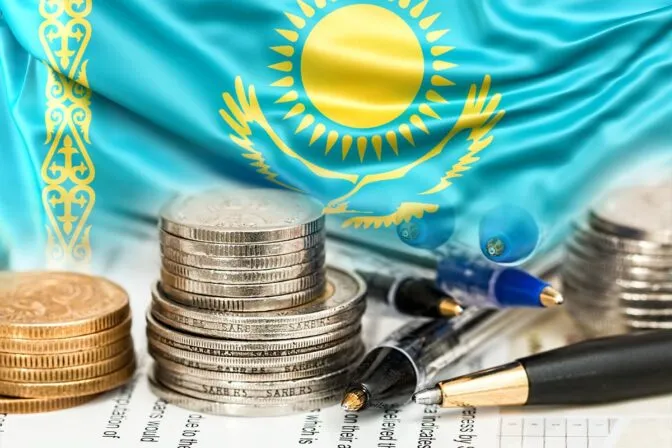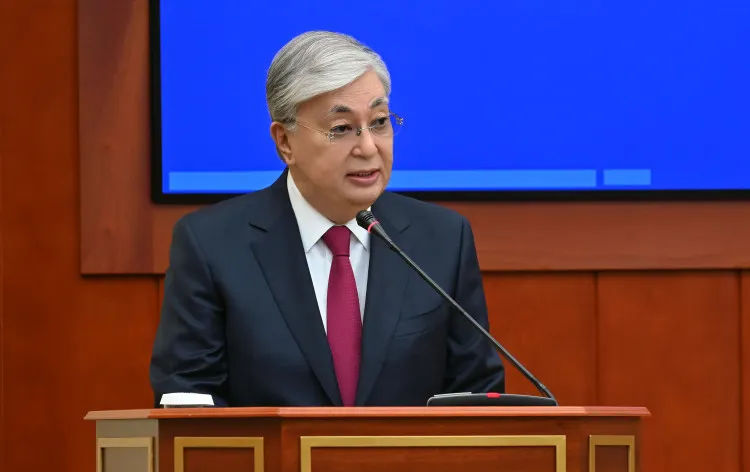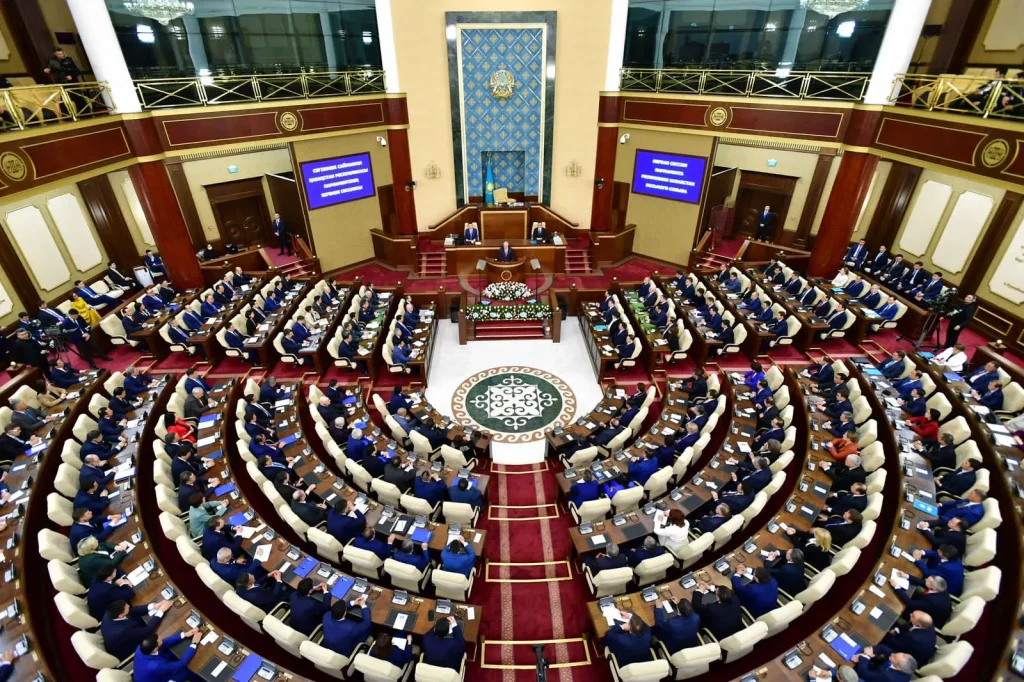![]()

Kazakhstan is one of the most interesting post-Soviet countries in terms of geopolitics and economic attractiveness. Continuing to be a part of the “arc of
instability”, Kazakhstan, however, since last year has attracted increased attention from business and investors from developed countries.
On the one hand, they are tempted by the opportunity, de jure observing the sanctions against the Russian Federation, de facto to continue doing business in the large Eurasian market. On the other hand, Kazakhstan today is the most economically profitable country in the post-Soviet space. And that’s why.
The exchange of mutual sanctions between Russia and a number of Western countries led to very painful logistical failures for the entire Eurasian region. And all types of transport. And here the corridor was very useful, which until recently was perceived by Europe as a kind of alternate, but not very attractive way – “the Trans- Caspian international transport route” (TITR).
European business began to actively talk about the need to activate this path back in the summer of 2021. And already in 2022, the growth of transportation along the TITR increased by 2.5 times, amounting to 1.5 million tons.
At the same time, the bulk fell on transit between Europe and China, as well as export-import deliveries of the countries of the region and the EU.
The geopolitical location in the “center of Eurasia” instantly turned Kazakhstan into a country “with which it is beneficial to be friends”.

Kazakhstan Preside Kassim Jomart-Tokayev
Firstly, logistics through the Caucasus is safe both from the political side (there is no risk of goods falling under the sanctions of the Russian Federation or the Republic of Belarus) and from the economic side.
Through the territory of Kazakhstan, the countries get access to the regional market of more than 500 million consumers, including the Eurasian Economic Union(EAEU) market with more than 180 million consumers, the markets of Central Asia (50 million), Western China (300 million) and the countries of the Caspian Sea (150 million).
And at the same time, logistics services in Kazakhstan are at a very high level – the country has been working for many years to turn itself into a modern transit hub in the very heart of the Eurasian continent.
In addition, more than 3,000km of the 10,000km of Beijing’s “One Belt, One Road” initiative passes through Kazakhstan, making it an important section of the main West-East land corridor.
In addition, the activation in 2022 of the North-South corridor through the Caspian, Kazakhstan, Turkmenistan and Iran provides a quick access to the eastern regions of India. That looks attractive for European business.
In fact, this is a new transit route for the delivery of goods from the EU to India (much faster than the sea route).
At the same time, Kazakhstan plays a key role in business relocation, including manufacturing facilities. During 2022, more than 60 companies moved their offices to Kazakhstan from Russia and Belarus, including the American manufacturer of control systems Honeywell, the international service InDriver, the Australian mining company Fortescue and the Japanese trading company Marubeni, TikTok, Knauff, etc.
Among the production facilities in Kazakhstan, for example, transferred the production of heavy-duty motorcycles to the Ural Motorcycles plant (RF/USA) and the production center for the assembly and restoration of pumping equipment, hydro-cyclones, valves of the Weir Minerals company (Great Britain), PKV Group of Companies (Lithuania) moved to the Republic of Kazakhstan from Russia, the production of liquid crystal televisions, Koppert (Netherlands) relocates to Kazakhstan the production of bio- fertilizers and plant protection products.
With more than 300 companies that have left or are planning to leave the territory of the Russian Federation and the Republic of Belarus, the authorities of Kazakhstan are negotiating.
However, we are talking not only about the relocation of companies, but alsoabout foreign direct investment by a number of countries in new projects in Kazakhstan.
In just 9 months of 2022, the volume of foreign direct investment exceeded US$22.1 billion, which is 18% more than a year earlier. During the year, 46 new projects with foreign participation were launched in mechanical engineering, renewable energy, metallurgy and agriculture.
At the same time, the main investor countries were the United States, European countries (primarily the Netherlands, France, Switzerland, Belgium, Great Britain), as well as South Korea, Turkey and China. That is, the main part of the countries that have entered into a political and sanctions confrontation with Russia.
And this despite the fact that the same United States in the spring and summer of last year expressed great concern about the likelihood of Moscow circumventing trade sanctions through the territory of Kazakhstan. First of all, we are talking about the so-called “parallel import”.
However, both then and during a recent meeting in Astana between President of Kazakhstan Kassym-Jomart Tokayev and US Secretary of State Anthony Blinken, the Kazakh side expressed a firm position that the country would not be a tool to circumvent US and EU sanctions against Russia. Kazakhstan has repeatedly assured its Western trading partners that it will tightly control sanctioned goods and investments on behalf of a person or entity under sanctions.
At the same time, Astana does not intend to retreat from trade relations with Russia and Belarus. A similar position was expressed by Tokayev at meetings both in European capitals during state visits to a number of EU countries, and in Moscow.
The fact that Kazakhstan adheres to the chosen strategy clearly demonstrates Washington’ “financial” confidence: 86% of all US trade with the Central Asian region last year fell on Kazakhstan. Only in the third quarter of last year, the volume of direct investments from the United States exceeded US$5 billion, almost 40% more than in 9 months of 2021.
The trust in Kazakhstan, as a reliable and risk-free partner, is also evidenced by the fact of increased interest in increasing investment and trade turnover with the Republic of Kazakhstan from a number of other countries. For example, the United Arab Emirates announced their intention to increase its investments in the country’s economy by more than US$5.5 billion already during the current year, while the total amount of investments in Kazakhstan by the UAE over the past 30 years does not exceed US$1 billion.
However, Kazakhstan’s prudent policy of balancing between political partnership and economic cooperation not only successfully harmonizes with the country’s
geopolitical attractiveness and potential access through its territory to the vast markets of the EAEU and Central Asia, but is also stimulated by very attractive business conditions.
Investors are provided with a full range of support services according to the “one-stop-shop” principle – from finding an idea to commissioning a project, as well as monitoring in the post-investment period, which allows you to work with each investor and project point-to-point, at all levels.
This mechanism allows you to broadcast projects from the regions directly to foreign institutions to search for potential investors and vice versa.
At the same time, a comfortable “soft infrastructure” has been built for investors: from work to clarify Kazakhstani legislation and procedures for interacting with government agencies to transparency in decision-making and reducing the administrative burden.
The state guarantees investors the stability of the concluded contracts, provides soft conditions for the visa regime and the possibility of attracting foreign experts to work.
 In addition, new approaches to investor-state interaction have been developed and implemented in Kazakhstan, which include the development of investment proposals, investor support, and the identification and elimination of adverse factors.
In addition, new approaches to investor-state interaction have been developed and implemented in Kazakhstan, which include the development of investment proposals, investor support, and the identification and elimination of adverse factors.
In order to increase the efficiency of work to attract investment in the country’s economy, an information and monitoring CRM system is being introduced, which includes all agreements, developed roadmaps for their implementation, tasks are assigned to all participants in the process – central state and local executive bodies.
Foreign investors are given the opportunity to operate within the framework of English law – on the site of the Astana International Financial Center. Companies registering as AIFC participants receive not only a guarantee of protection of their rights based on case law, but also automatically receive additional preferences: tax benefits up to 50 years, simplified currency, visa and labor regimes.
The center is a financial hub for companies and investors from Central Asia, the republics of the Caucasus, the EAEU, the Middle East, Western China, Mongolia and Europe.
In addition to “technical” support, interaction with investors is also carried out along other vectors. The development strategy of Kazakhstan until 2050 provides for the diversification of various industries, aiming, among other things, to provide the country’s investment field with high-quality human capital, technological infrastructure and conditions for the development of science, digital technologies and innovations.
Relevant requests from business are formed on the dialogue platforms of various associations and advisory councils. Including, within the framework of the Council of Foreign Investors chaired by the President of Kazakhstan and the Council for Improving the Investment Climate under the Prime Minister, created jointly with the American Chamber of Commerce AmCham.
Kazakhstan, declaring the inviolability of its multi-vector foreign policy, strictly adheres to the logic of economic benefit and very effectively adapts to today’s situation, ensuring mutual benefit in relations with any foreign investor.










